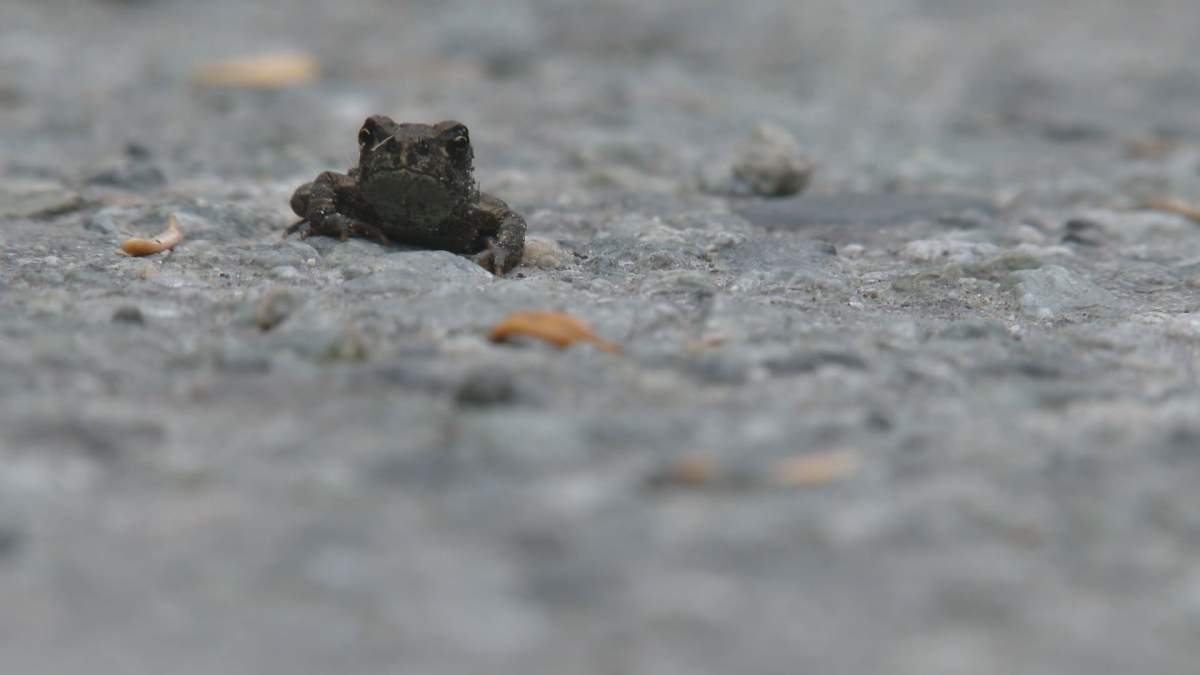The community of Whistler is preparing for an annual spectacle of nature that will see an estimated 40,000 baby Western Toads migrate from Lost Lake to the nearby forest.

Lost Lake Park serves as the breeding ground for the toads, who hatch and live as tadpoles in the lake before moving to the forests to mature, then return to the lake to mate.
The toads are “blue listed” in Canada, meaning they are of special concern and vulnerable in their environment.
“These toads are what we call a sensitive species,” said volunteer Miyuki Yamagochi Espada.
“A mother can lay 12,000 eggs, and less than one per cent of them will live, so it’s really important that we don’t contribute to the deaths of these toads while they’re trying to make their way up into the forest.”
WATCH: Saving the Lost Lake toads in Whistler

The Resort Municipality of Whistler (RMOW) says at the peak of the migration, up to 1,800 toadlets can be observed crossing the Lost Lake Beach Trail in a single hour.

Get daily National news
But with those toadlets barely larger than a dime, that mass migration can come with high casualties when the small amphibians are accidentally crushed by pedestrians and cyclists.
As a result, the RMOW is phasing in closures to parts of Lost Lake Park to protect the sensitive species.
The Lost Lake Access Road and parking lot were closed to vehicle traffic on Friday, and the Events Lawn and Beach Cut Trail were closed to cyclists and pedestrians.
Lost Lake Beach and a portion of the Valley Trail leading to the beach were also closed.
The remaining trails in the area were still open on Friday, but could be closed depending on where and when large migrations are observed.
The municipality has also built infrastructure such as signage, fencing and a special toad underpass to protect the amphibians.
The RMOW said the migration typically lasts between two to four weeks. In 2017, it began on Aug. 3.
You can find out more about the toad migration here.








Comments